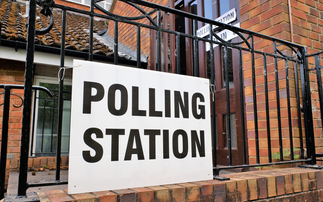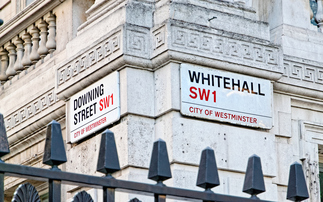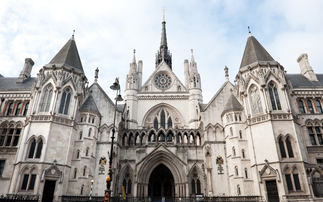Last week's Environmental Industries Commission Summit offered a timely insight into the green economy's on-going Brexit concerns
6. What does Brexit mean for devolved environmental powers?
The assumption has been that Brexit will return large swathes of environmental policy-making to the UK. But where in the UK will it return to? Significant elements of agricultural, fishery, air and water quality, energy and climate policy will be taken back from Brussels post-Brexit, but to date there has been negligible indication as to how these new powers will be shared between the UK's devolved administrations.
It seems inevitable Westminster will want to keep many of these new powers to itself, but as several panellists noted last week, this is bound to infuriate the governments in Scotland, Wales, and Northern Ireland.
An SNP push to be given the authority to set Scotland's air standards or decide on the country's own farming rules seems inevitable. Some businesses will want to see policy divergence between different parts of the UK kept to a minimum, others will argue that devolved governments have the potential to drive up standards for the whole of the UK, as happened with the plastic bag levy. The resulting tussle could yet decide the future of the union.
7. Will the UK stay in the EEA?
No, not the European Economic Area - that's a whole other question. Will the UK remain a member of the acronym-sharing European Environment Agency?
As Paul McAleavey, head of air and climate change at the European Environment Agency, pointed out the agency has members who are not EU states, including Norway, Switzerland, and Turkey. The government has said it wants to remain a world leader in environmental standards and the EEA could provide independent benchmarking for the UK's environmental performance. The question is whether ministers will let it.
8. Can Michael Gove deliver on his promises?
Given they are his political opponents it is not surprising that Creagh and Davey advised delegates to treat the Environment Secretary's green charm offensive with a large dose of scepticism.
But Davey acknowledged the one silver lining to a Brexit process he fears will prove disastrous is the opportunity to reform the Common Agricultural Policy. Gove has signalled he wants to introduce a system of agricultural subsidies where farmers are paid for environmental benefits, potentially offering a sizeable boost to the green economy.
However, the question remains as to whether Gove can deliver on his early promises, and more widely whether the government has the capacity to deliver successful new environmental initiatives when Brexit dominates Whitehall. As one slide revealed, the headcount at Defra has fallen from around 6,000 in 2005 to 2,000 staff in 2016. Many green businesses will fear delivering Brexit would be hard enough with sufficient resources, let alone with the current slimmed down Whitehall operation.
9. Where is the Clean Growth Plan?
One mechanism for reassuring green businesses about the UK's long term prospects is provided by the imminent Clean Growth Plan, previously known as the Emissions Reduction Plan. Yet, as Creagh observed, "it doesn't matter what you call, it doesn't exist".
Despite widespread expectations it would finally be published in early September it is still yet to materialise, and Creagh voiced fears it may be delayed still further. Similarly, the promised 25 Year Plan for Nature is nowhere to be seen.
The rumour in some quarters is that Theresa May is frit. She is said to fully accept that an ambitious Clean Growth Plan makes economic sense, but is reluctant to wave a red (or should that be green) rag in front of her hard right awkward squad before the Conservative Party Conference. According to this analysis, a fear that media coverage of this economy-wide plan will focus solely on the prospects for new onshore wind farms is leading to yet more delays and fuelling fears BEIS's plans could yet be watered down.
Environmental industries will hope those within government who understand the compelling economic case for bold climate action and its potential to appeal to swing voters, especially amongst the young, will stiffen Number 10's sinews. The new plan could deliver some much needed long term clarity about the UK's domestic policy landscape regardless of any Brexit impacts, but businesses need to see the results sooner rather than later if they are to be reassured.
10. Should green businesses prepare for a no deal scenario?
Green Alliance's Spiers was adamant a deal would be done, predicting the economic catastrophe that would ensue if the UK crashes out of the EU without any sort of new trade agreement will focus minds and result in some form of deal being brokered, most likely in the form of a lengthy transition period.
Green business leaders will hope he is right, because the short and potentially long term impacts of such a scenario could well include hefty tariffs on imports and exports, quick and dirty trade deals with the US that ditch environmental standards, and the sight of Boris Johnson determining which green rules he deems unfair and unwise.
However, there are still preparations businesses can make for any and all Brexit scenarios. As Caroline Hill, head of sustainability at property giant Landsec, observed there are a host of megatrends that favour more sustainable business models. Climate risks, concerns over air quality, urbanisation, and plummeting clean tech costs all point to a transition towards greener business models, regardless of how Brexit pans out.
James Murray chaired the EIC Political Summit










